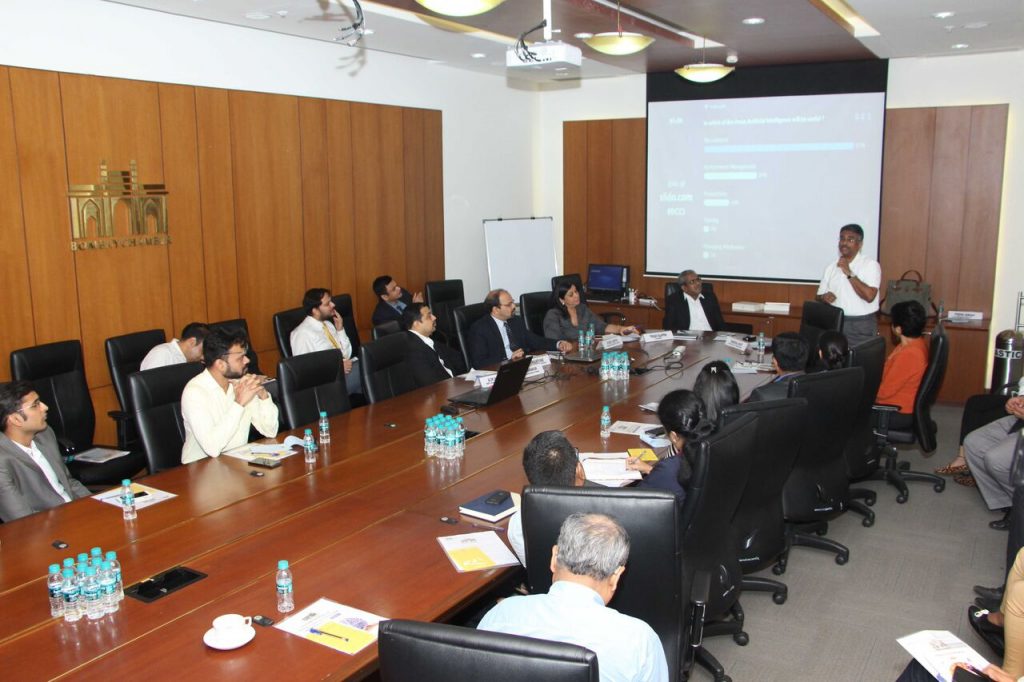Bombay Chamber of Commerce & Industry (BCCI) organised a roundtable on the applications of AI in HR and the challenges that come along with it. The panel consisted of Baburaj Nair, CHRO, Hindu Group of Publications, Purvi Sheth, Shilputsi HR Consulting, Alok Sheopurkar, Head HR, HDFC Asset Management Company and Prasad Rajappan, CEO, Zing HR. The panel was moderated by Prasanth Nair – Managing Partner InHelm Leadership Consulting.
Artificial Intelligence (AI) can bring in a sea change in everything that we do and HR is not immune to this change. Though, people agree that AI has the capability of transforming the way HR functions, there is a certain inhibitions to accept this change. There are quite a few challenges as well.
Last week, the Bombay Chamber of Commerce & Industry (BCCI) organised a roundtable on the applications of AI in HR and the challenges that come along with it. The panel consisted of Baburaj Nair, CHRO, Hindu Group of Publications, Purvi Sheth, Shilputsi HR Consulting, Alok Sheopurkar, Head HR, HDFC Asset Management Company and Prasad Rajappan, CEO, Zing HR. The panel was moderated by Prasanth Nair – Managing Partner InHelm Leadership Consulting.
Here are the minutes of the discussion that the panel debated, disagreed and agreed upon.
1. HR has a mandate to deliver and that’s in line with the business goal of the organisation. In such a scenario there is very little scope of predictability. It’s here that the role of AI comes into play. It enables HR to improve on its decision making capabilities and minimize predictability. Not just recruitment, AI has shown promise in all aspects of HR be it training, performance management and attrition.
2. Most organisations use technology for ‘convenience’ wherein the challenges of ‘distance’ and ‘choice of time’ are addressed. There are a few other companies that use the ‘computing power’ of technology. However, the use of ‘cognitive intelligence’ is still very limited and that needs to popularised extensively.
3. AI is not just about saving costs, or better utilisation of an executive time and thus improve his/her What AI enables is self-learning through which the executive can take informed decision based on predictions. It also eliminates biases and group thinking phenomenon. All we need to do is understand and train the model sufficiently.
4. To ensure that the industry gets the best of AI technology, HR practitioners need to reskill and ensure that there is an uninterrupted connectivity between technology and people. HR practitioners also need to ensure execution and implementation of AI at the last mile and that will be the key.
5. One of the important role for HR will be to address the concerns of privacy and security and ensure they are handled well. In addition, the challenge will be to ensure that the empathy and human touch is not lost in the transition. Though, technology in itself will enable us, but there will be ethical and moral dilemmas that need to be addressed in the use of AI.
The panel concluded the discussion by agreeing that the industry needs to meet, discuss and debate at many such forums for a better understanding and applicability to the context with the aim to add value to people and business.



